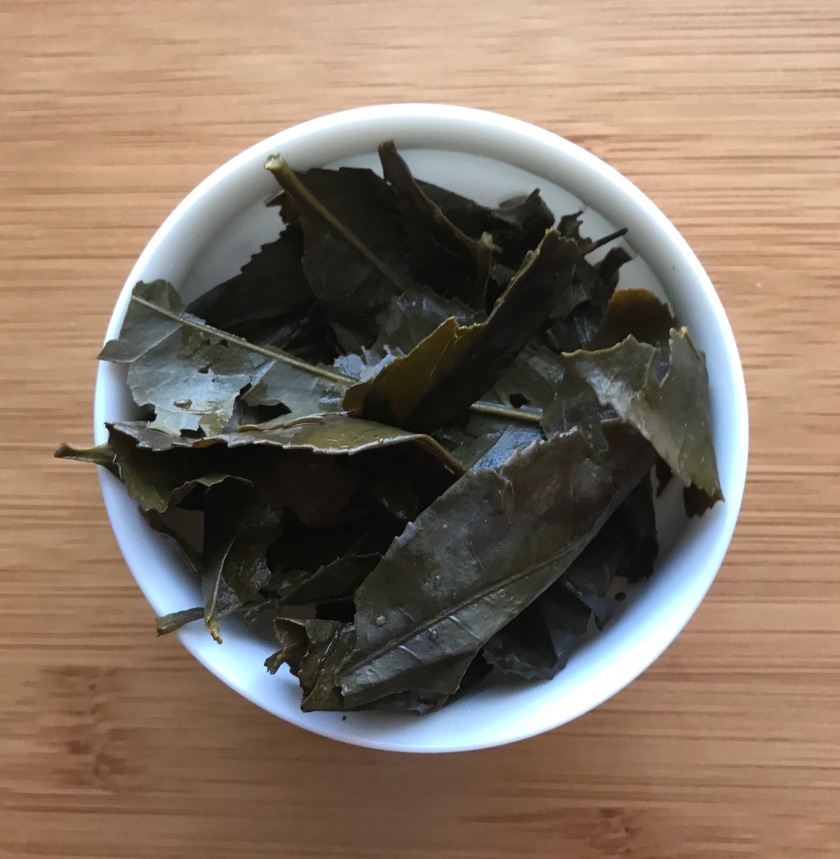
Hello all! Sorry I’ve been MIA for a while, finals have been coming up and I was studying like craaazzyy.
Anyways, I’m back with another tea review and I’m very excited, since I will be tasting a dark (post-fermented) tea from Japan.
I’ve seen several Japanese dark teas around so I bought a few (reviews coming soon) and this is one of them. This particular dark tea is called awa bancha (阿波晩茶).
Awa bancha is produced traditionally in Tokushima Prefecture, on the eastern side of the island of Shikoku. This tea was produced there but sourced from a tea shop (Furyu Bancha Specialty Shop) in Fukuoka, on the island of Kyushu.
So what sets this tea apart from, say, a Chinese dark tea? Well, it’s all about the fermentation. While Chinese teas are piled to encourage fermentation by mold (very noticeable in something like a Fu brick tea), this dark tea is fermented with lactic acid fermentation, like the processing of milk into yogurt.
It’s quite mundane in it’s production, however. Mature leaves are picked, the leaves are rubbed by hand or through a machine, and then they are left in a bucket to ferment.
So, let’s get on to the tasting. I brewed this tea up in a 360ml kyusu pot with boiling water.

The dry leaves are giant, and they almost remind me of dry leaves you would see walking in a forest here in New York. They smell a little earthy but mostly tangy and slightly fruity, like dried hibiscus tea. There are slight floral notes reminiscent of rose. Now that I think about it, the fruity scent is a lot like umeboshi (pickled plums).

The steeped leaves smell like nothing I’ve ever smelled before. There are light, wet leaf notes along with an umami scent of soy sauce. There is also a distinguishable toasted rice scent throughout.
The tea has the distinctive umeboshi scent of the dry leaves however it mostly smells like wet leaves. The smell, unusually, reminds me a lot of aged white tea (particularly the aged shou mei I recently reviewed).
Upon tasting the tea, the first flavor is a soft, subtle taste of wet forest floor. There is a little sweetness along with light notes of vanilla. It ends on a distinctive sourness which is a little unusual but not overpowering or anything. It’s quite crisp and fresh and has a very light, watery texture. Overall, it tastes kind of like if sour plum was added to an aged shou mei. I steeped it again and it tasted very similar, but the earthy notes became a little more pronounced and a subtle, piney flavor really enhanced the umeboshi notes I was getting.
Overall, this is a very interesting tea. It’s unlike anything I’ve ever had but since it’s so bizarre I would love to explore some more Japanese dark teas. I’ve also seen some Korean dark tea out there so I will definitely be snagging some of that to review in the next month or two.
Rating: 8/10
From: Yunomi Tea
Tokushima Prefecture, Shikoku Island, Japan

I would recommend that you explore these two Japanese dark teas: goishicha (very unique aroma), and batabatacha (my favorite Japapanese dark tea in terms of taste).
LikeLike
Thanks for the recommendation! I picked up some goishicha recently and I plan to taste it soon and I’ll definitely look into buying some batabatacha.
LikeLike